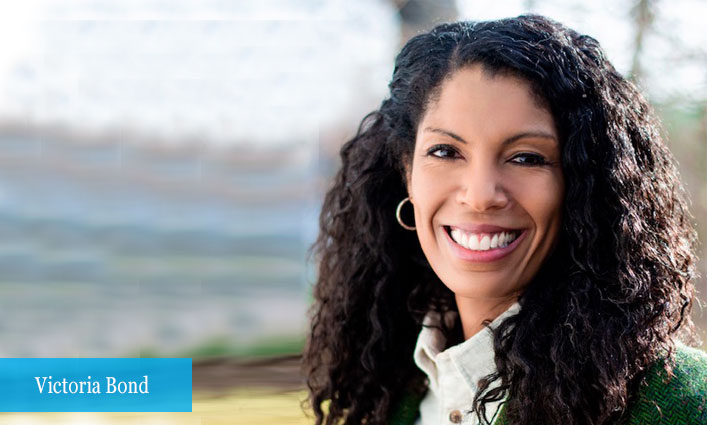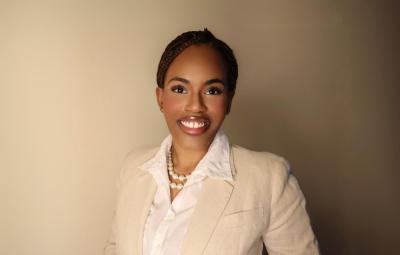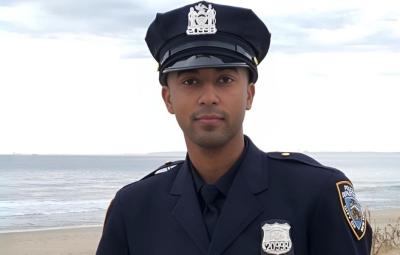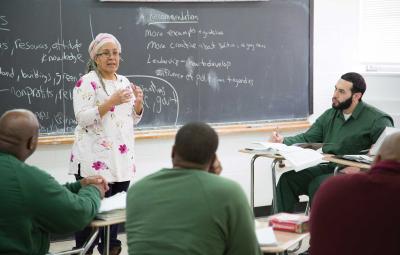
In the Zora and Me book series, John Jay lecturer Victoria Bond and coauthor T.R. Simon, are bringing literary giant Zora Neale Hurston’s childhood to light, reimagining her as a kid detective in her hometown of Eatonville, Florida. “Like the literary icon Zora Neale Hurston, our Zora is a storyteller determined to figure things out,” says Bond. In Zora and Me: The Summoner, the final adventure in the trilogy, Bond explores the dynamics around an election and what motivates people to vote the way they do. She’s also hoping to inspire readers to think about the needs of the entire community when casting their votes this November. “In the book, you see how fear is used as a tool to galvanize members of the community to vote for the wrong person as opposed to the trusted town mayor,” says Bond. “And, as a reader, you understand people’s motivations, why people do the things they do, and why they make the choices that they make. I hope the book inspires people to vote and to make a decision based on love for the community. Make a choice that serves the whole community and not just a narrow few.”
“I hope the book inspires people to vote and to make a decision based on love for the community. Make a choice that serves the whole community and not just a narrow few.” —Victoria Bond
Learning More About Zora Neale Hurston
Bond’s admiration for Zora Neale Hurston and what she represents to African-Americans is palpable. “If there is a well of the African-American experience in the 20th century, it is Zora Neale Hurston,” says Bond, recalling Hurston’s accomplishments as a novelist, journalist, playwright, anthropologist, and the first Black woman graduate of Barnard College. “Zora braids together all of these threads of the African-American experience from the Harlem Renaissance through her anthropological work during the Great Depression, and as a member of the WPA [United States Work Progress Administration]. And then, you see this kind of tragic turn when she publishes her novel Their Eyes Were Watching God, and how it’s trashed by mostly men.” Elaborating on the negative backlash, Bond suggests the men were offended by Hurston’s celebration of Black life. “Zora wrote about the beauty of being Black rather than the difficulties that came along with racism, and this shook people up,” she says. “We know so much more about Black people in 20th century America because Zora Neale Hurston lived.” Hurston’s focus on writing about Black people, their storytelling, how they speak, and what their beliefs are, was a reflection of her childhood in Eatonville, Florida, one of the first all-Black incorporated towns in America. “Eatonville was this Black democracy, a place where Black people could prosper and live freely. They had the autonomy to support themselves and be themselves, which was difficult to find in the Jim Crow South,” says Bond. “Zora comes out of this very special place where Black people’s endeavors center around their own success. It’s what makes her blossom into this powerful figure.”

“When people are fearful, they want to go into protection mode. They want to put barriers up, close off the borders, and isolate themselves. But what they’re not realizing is that the isolation will put so many more people in danger.” —Victoria Bond
Understanding How Fear Motivates Voters
In late 2016, when she sat down to write Zora and Me: The Summoner, Bond began to think critically about the motivations, and quite possibly the fears, that can lead people to make the decisions that they do. “In the book, Zora’s father John is running for town mayor, and Zora thinks he’s the wrong choice—which he is. She wonders, Has everyone lost their minds? My father is not the right person to run the town.” Throughout the story, Bond shows readers a series of events that provoke people in the town to choose John over the better, more trusted candidate. “I set up a series of events that scare the people in the town—a lynching and a grave robbery—and it creates a real sense of fear. It's this fear that motivates the people to choose the candidate that is worst for the job,” says Bond. “When people are fearful, they want to go into protection mode. They want to put barriers up, close off the borders, and isolate themselves. But what they’re not realizing is that the isolation will put so many more people in danger. John speaks to the town people’s fears, so they start to believe that the only way they can be safe in Eatonville is by shutting other people out.”
“Act in the interest of the group, not in the interest of the few.” —Victoria Bond
Loving the Community
While fear can often propel people to do things they normally wouldn’t do, Bond believes there’s a greater source of motivation that we can all tap into. “We need to access the love in people, especially the love for the community. We can’t just think about our most narrow needs. We have to think about other people’s biggest needs. Act in the interest of the group, not in the interest of the few. Make a decision that supports everyone. Protecting everyone. Feeding everyone. Helping as many people as you can. Make a decision that serves the whole, not the few,” says Bond. “The marches and protests we saw this past summer were so enlivening. The fact that people, in the middle of a pandemic, felt that they needed to stand up and go out to the streets to say, ‘We are a community. We love each other and what you’re doing to us is unacceptable,’ was moving. There is strength in community. There is incredible power in a unified, loving, supporting community. It’s a reminder that we can and should take care of one another.”



